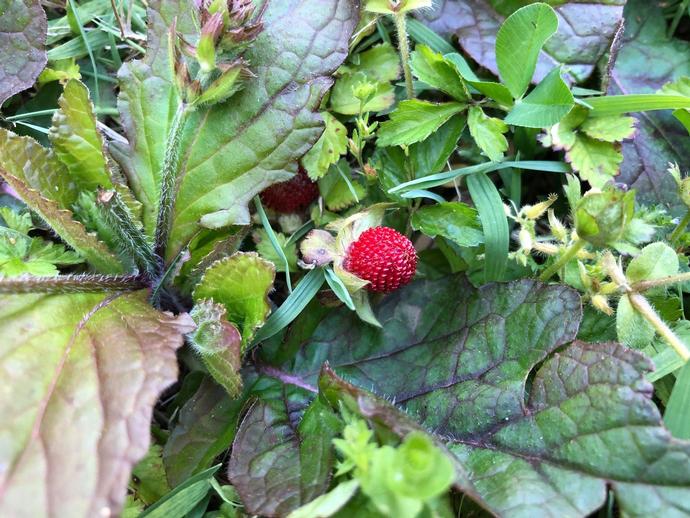May 13, 2020
There's a very good chance that you have a patch of these growing in a shady spot in your lawn right now. Although they're often called "wild strawberries," this is actually the mock strawberry Potentilla indica. This plant is native to eastern and southern Asia, but it has been introduced and naturalized in a number of places all over the world, including the U.S.
Much like strawberries, this plant sends out stolons (an underground stem, popularly known as a "runner") and can spread pretty quickly. It produces yellow flowers around the middle of spring and continues to flower and produce fruit throughout the growing season.
The fruit of the mock strawberry is actually safe for human consumption, but don't start gathering them up for your fruit salad just yet; they have very little flavor, and what flavor they do have has been compared to eating the inner rind of a watermelon. Plus, since they're generally considered an invasive weed, you never know if someone has come along and spritzed them with an herbicide, so it's best to play it safe.
There IS a species of wild strawberry that's pretty common throughout much of the state: Fragraria virginiana, also known as the Virginia strawberry, is tiny compared to the strawberries you would buy at the store or grow in your garden, but it's pretty delicious! It is one of two species that was hybridized to create the common garden strawberry. As soon as I find one, you can rest assured it will be posted here! #BenInNature
NEW! If you discover something in nature that you would like help identifying, be sure to message us right here on Facebook with a picture and we'll have our experts help you identify it!
About this post: Social distancing can be difficult, but the next few weeks present a great opportunity to become reacquainted with nature. While he is working from home, Administrator of Science Ben Williams is venturing outdoors each day to record a snapshot of the unique sights that can be found in the natural world.
This post brought to you by VMNH Corporate Supporter Carter Bank & Trust.

 Hours & Admissions
Hours & Admissions Directions
Directions

